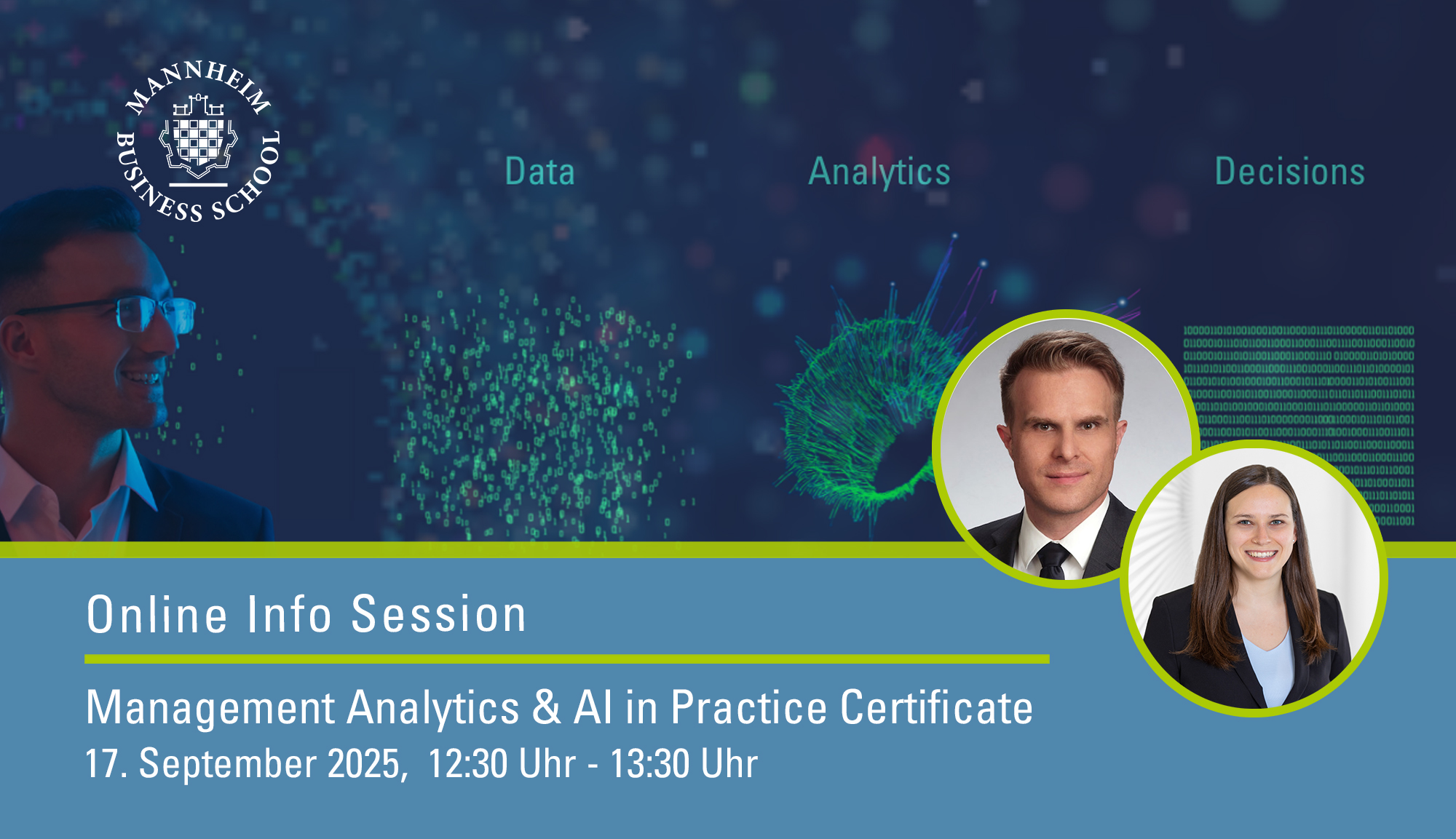Management Analytics & AI in Practice Certificate
You are here: Programs & Courses » Open Certificate Courses » Management Analytics & AI in Practice Certificate
Leverage AI and Analytics for Strategic Decision-Making and Business Impact
This 5-day executive program with two modules is designed for German business leaders seeking to leverage data analytics and AI for strategic decision-making. The program bridges the gap between AI technologies and executive leadership, helping participants integrate AI into business strategy, and decision-making processes. The course provides a hands-on introduction to key data science techniques and AI-powered decision-making tools, including ChatGPT, large language models (LLMs), and generative AI.
Key Facts

Program Structure
Two on-site modules

Program Duration
5 days,
October 9-10, 2025
November 6-8, 2025
Online Kickoff Sep 25, 2025, 3-4 PM

Location
On site, Mannheim, Germany

Language
German, some course materials in English

Course Fee
€4,900
Early-bird offer €4,200

Prerequisites
At least one year of work experience, good German and English language skills

Credits
Certificate awarded by Mannheim Business School

Reputation
MBA-level teaching at Germany’s #1 business school
Upcoming Information Events
Program Description
This program equips you with an integrated approach to harnessing the power of advanced analytics and artificial intelligence for transformative business impact. You will:
- Understand AI, machine learning, and data analytics from a managerial perspective
- Leverage AI and Analytics for Strategic Insight: Utilize sophisticated AI algorithms and data analytics techniques to evaluate business performance, forecast emerging trends, and make informed strategic decisions that drive growth.
- Extract and Communicate Deep Data Insights: Explore cutting-edge AI-driven models and advanced analytical tools designed to interpret complex datasets, uncover hidden patterns, and effectively communicate actionable insights to diverse stakeholders.
- Understand Ethical, Legal, and Regulatory Implications: Delve into the ethical, legal, and regulatory considerations surrounding AI, big data, and digital transformation to ensure responsible, sustainable, and compliant technology integration.
- Develop Comprehensive Integration Strategies: Create detailed, forward-thinking strategies for embedding AI and analytics solutions within an organization, aligning technological advancements with overarching business objectives for long-term competitive advantage.
Find more detailed information on the German version of this page.
Contact Person

Downloads
- Privacy Policy Open Courses
- Anmeldeformular Management Analytics & AI in Practice Certificate
- Broschüre Management Analytics & AI in Practice Certificate







